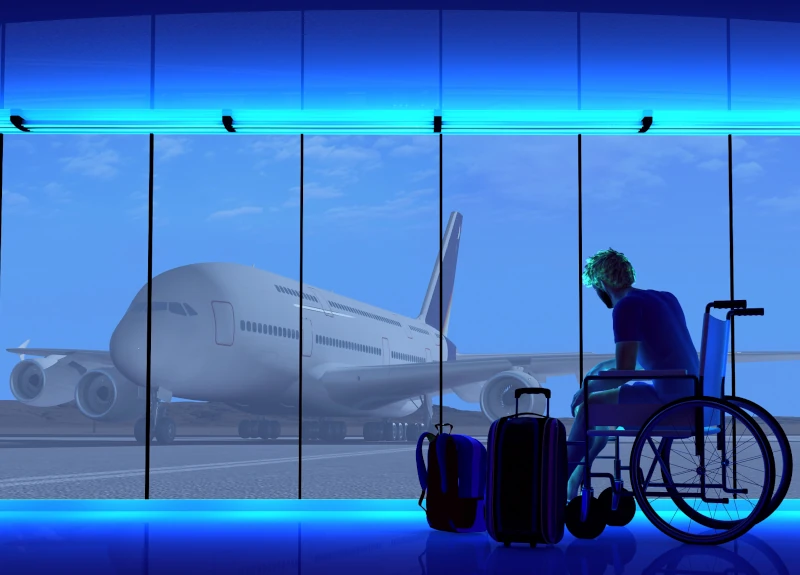
December was a frustrating month for airline passengers. But every month is frustrating for passengers who are flying with disabilities. The indignities include damaged wheelchairs, inaccessible lavatories, rude gate agents, and even physical injuries—up to and including death. The latter occurred in late 2021, when prominent disability advocate Engracia Figueroa (a lower-limb amputee) suffered a fatal health decline after the destruction of her $30,000 wheelchair on a United Airlines flight. In another high-profile case, an amputee passenger sued American Airlines when she was forced to scoot down the aisle on her butt to reach the lavatory. And just last month, United lost the wheelchairs of two different passengers on the same flight.
US Senator Tammy Duckworth (D-Illinois), who lost both legs in combat during the Iraq War in 2004, has experienced this sort of thing firsthand. More than once, she’s deplaned to find a busted-up wheelchair awaiting her. But despite her formal complaints and her position of authority, airlines have continued to treat her essential mobility devices carelessly, if not recklessly.
“For too long, carriers have gotten away with predatory practices that view passengers with disabilities as disposable,” says Duckworth. As a first step toward changing that pattern, Duckworth introduced legislation yesterday that would bring greater scrutiny on US airlines that fail to serve disabled passengers to an acceptable standard. Co-sponsored with Republican Senator Deb Fischer of Nebraska, the Prioritizing Accountability and Accessibility for Aviation Consumers Act would require the Department of Transportation to publish a detailed annual report of disability-related air-travel complaints.
The number of formal complaints lodged with the FAA’s Civil Rights division rose 157 percent between 2020 and 2021, the latest year for which final data are available. But the details of those complaints, and the resulting FAA policy reforms (if any), aren’t readily available. Ergo, neither the airlines nor their regulating agency feel any heat despite persistent and worsening problems.
“By ensuring the FAA’s annual report includes a breakdown of disability customer complaints, this legislation will help hold airlines accountable,” says Fischer. Duckworth adds that “by preventing disability-related complaints from being swept under the rug, our bipartisan bill would shine a light on these problems and help ensure that the millions of passengers with disabilities who fly every year are treated with the dignity and respect they deserve.”
According to a recent analysis published at Wheelchair Travel (wheelchairtravel.org), a website operated by triple amputee John Morris, US air carriers mishandle tens of thousands of wheelchairs and other mobility devices every year. The worst offenders are Spirit and JetBlue, which messed up 5 percent of the wheelchairs in their care during the 12-month period from November 2021 through October 2022. Even the best performer in Morris’s rankings, Delta, mishandled more than 1,600 assistive devices during the study period.
Those statistics are only available because of a law Duckworth authored in 2021, which forced airlines to start filing monthly tallies of the mobility devices they break, mishandle, or lose. “I’m committed to helping ensure air travel is as safe and convenient as possible for every traveler—including Americans with disabilities,” says Duckworth, who chairs the Aviation Safety, Operations, and Innovation Subcommittee of the Senate Committee on Commerce, Science, and Transportation.
Find more information about the bill, and how you can encourage its passage, at Duckworth’s website.




